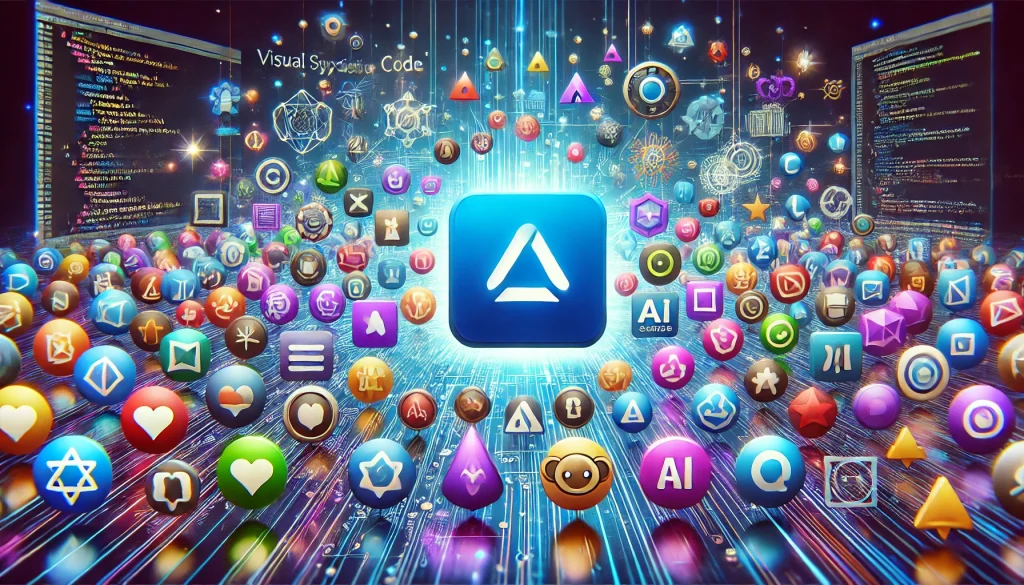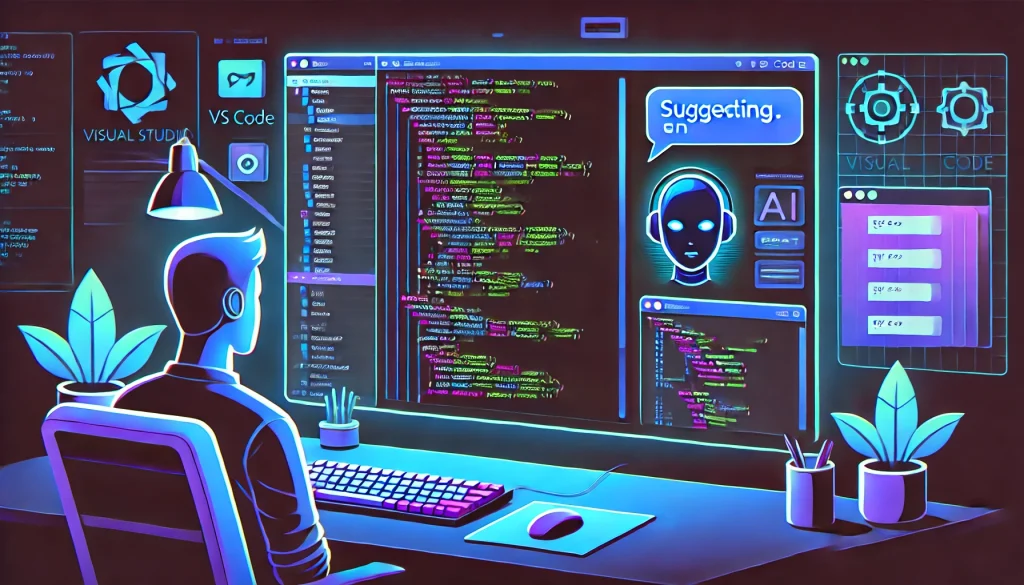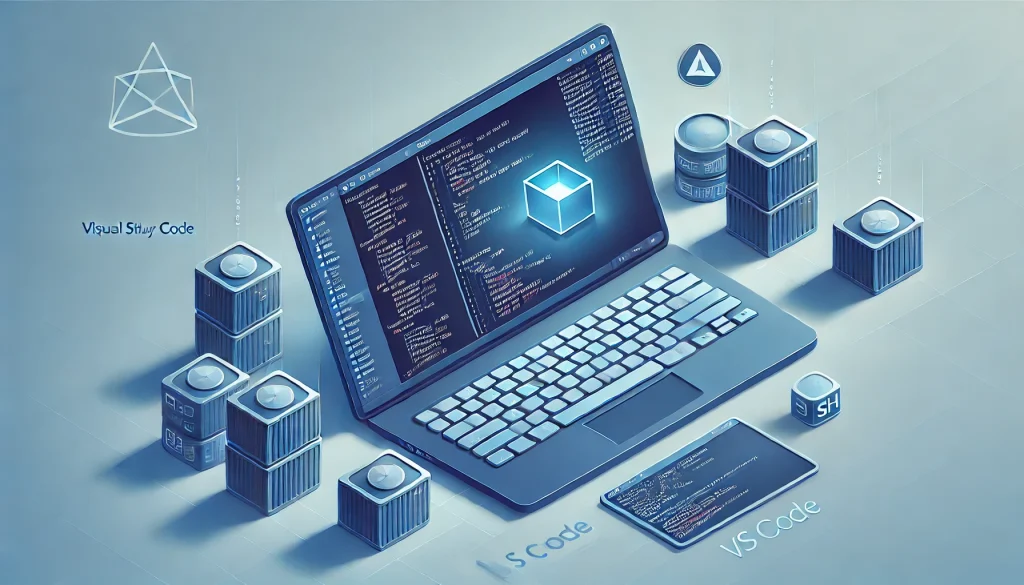Visual Studio Code remains a dominant force in code editing, thanks to its open-source nature, cross-platform support, and robust extension marketplace. With hundreds of new extensions added monthly, selecting the best can be daunting. Below, we’ve curated 20 extensions (plus some honorable mentions) that cater to AI-driven suggestions, advanced debugging, container workflows, and more. Whether you’re a seasoned dev or a newcomer, these picks can supercharge your 2025 coding experience.

1. GitHub Copilot
Category: AI Suggestions
Why It’s Great: AI-driven code completion from GitHub, capable of generating entire functions or providing relevant snippets based on context.
What’s New in 2025: Deeper integration with your project’s codebase, “Conversation Mode” for quick Q&A, and improved language models that reduce inaccurate suggestions.
2. Tabnine
Category: AI Code Completion
Why It’s Great: Another AI-powered assistant that uses local machine learning or a cloud model to offer advanced autocompletes.
What’s New in 2025: Optional privacy-friendly offline mode for large-scale enterprise, plus stronger multi-language coverage in the same workspace.
3. IntelliCode (Microsoft)

Category: AI Hints & IntelliSense
Why It’s Great: Integrates directly with VS Code’s IntelliSense, providing AI-based suggestions for popular languages—C#, Python, JavaScript, and more.
What’s New in 2025: Gains additional domain-specific models for frameworks like Angular, Django, and .NET 8.
4. ESLint / Prettier
Category: Code Linting & Formatting
Why It’s Great: Still the gold standard for consistent JavaScript/TypeScript style, auto-formatting, and catching basic syntax issues.
What’s New in 2025: Prettier 3.0 includes improved heuristics for micro-frontend code splitting, while ESLint has better TypeScript AST integration.
5. Docker / Remote Containers
Category: Container Integration
Why It’s Great: Microsoft’s official Docker extension plus Remote – Containers extension let you develop inside containers, ensuring consistent dev environments.
What’s New in 2025: Smoother multi-container debugging, advanced Docker Compose integrations, and GPU pass-through for AI tasks in containers.
6. Remote – SSH
Category: Remote Development
Why It’s Great: Seamlessly edit files on remote servers via SSH as if they’re local. Perfect for devs working on Linux-based HPC clusters or Pi devices.
What’s New in 2025: Enhanced session resume, minimal overhead for ephemeral container-based dev setups, plus integrated terminal re-connection logic.
7. Live Share
Category: Collaboration
Why It’s Great: Real-time pair programming or group coding, letting participants see each other’s cursors, edits, and debugging steps.
What’s New in 2025: AR/VR co-presence in Live Share allows participants to join coding sessions with optional 3D or XR-based chat overlays for more immersive collaboration.
8. REST Client
Category: API Testing
Why It’s Great: Write and test RESTful (or GraphQL) requests directly in .http or .rest files, without leaving VS Code.
What’s New in 2025: Enhanced multi-step request chaining, plus integrated AI-based suggestions for request payload auto-completion based on JSON schema.
9. Python (Microsoft)
Category: Language Support
Why It’s Great: Essential for Python dev, offering IntelliSense, linting, debugging, and Jupyter integration.
What’s New in 2025: Revamped data science mode with auto-creation of environment variables for local PyTorch or TensorFlow. Built-in approach to launching remote training scripts inside a container.
10. Visual Studio IntelliCode – Completions
Category: Advanced IntelliSense
Why It’s Great: AI-driven suggestions that auto-rank completions based on thousands of open-source projects.
What’s New in 2025: Micro-optimizations for large codebases, improved multi-file context reading, and better recognition of code patterns (like domain-specific naming conventions).
11. Markdown All in One
Category: Documentation / Productivity
Why It’s Great: Provides live preview, auto-syntax, and advanced keyboard shortcuts for Markdown editing—crucial for readmes, wikis, or blog posts.
What’s New in 2025: Built-in AI summarizer that can suggest headings or table-of-contents for lengthy docs. Option to auto-embed code snippet styling from your chosen syntax highlighter.
12. Code Spell Checker
Category: Quality Assurance
Why It’s Great: Catches typos in comments, strings, or variable names—particularly helpful in team environments.
What’s New in 2025: Multi-language expansions (English + 10 languages in the same file?), domain dictionaries for technical jargon or product-specific terms.
13. GitLens
Category: Version Control
Why It’s Great: Enhances Git integration by showing commit history, code blame, and line-level authorship directly in the editor.
What’s New in 2025: “AI Suggestions” that predict refactors based on commit patterns, advanced conflict resolution wizards, plus deeper integration with GitHub Actions logs.
14. Rainbow CSV
Category: Data Handling
Why It’s Great: Colorizes each column in CSV or TSV files, making large data sets more readable.
What’s New in 2025: Automatic detection of delimiting patterns, minimal memory usage, and optional AI-based “smart header detection” for column naming.
15. Code Runner
Category: Rapid Testing
Why It’s Great: Quickly run code snippets from dozens of languages directly inside VS Code, no need for separate terminals or tasks.
What’s New in 2025: Support for newer languages (like Mojo or Verse), plus partial debugging that can highlight runtime errors in real time.
16. Remote Repositories
Category: Cloud Dev
Why It’s Great: Access GitHub or Azure repos without cloning them locally. Perfect for quick code browsing or editing.
What’s New in 2025: More advanced caching, partial file sync, and optional read-only modes for safer environment reviews in big monorepos.
17. Svelte for VS Code
Category: Framework-Specific
Why It’s Great: Popular for front-end dev with Svelte; includes syntax highlighting, auto-import, error checking.
What’s New in 2025: AI-based snippet generation for SvelteKit routes, advanced SSR debugging integration.
18. Astro Language Tools
Category: Next-Gen Web Framework
Why It’s Great: Helps devs building with Astro’s partial hydration and “islands architecture.” Linting, auto-completion, and SSR hints included.
What’s New in 2025: Real-time AI-based performance tips for static and dynamic components, bridging best practices for minimal JS shipping.
19. Docker Explorer

Category: Container Management
Why It’s Great: Visualize Docker images, containers, and volumes. Start/stop containers or attach shells from within VS Code.
What’s New in 2025: Kubernetes integration to spin up test deployments locally, plus built-in logs viewer for containerized services.
20. AI Test Generator
Category: Automated Testing
Why It’s Great: Leverages GPT-based analysis to propose unit tests for your functions or classes, cutting down manual test creation.
What’s New in 2025: Smarter coverage detection, domain-specific test suggestions (like edge cases in e-commerce or finance code), and improved accuracy for languages beyond JavaScript.
Conclusion
The VS Code extension marketplace is thriving in 2025, offering AI-driven suggestions, advanced debugging, container workflows, and specialized language tools. Whether you need minimal overhead or robust collaboration features, these Top 20 picks showcase how the modern developer’s environment is transforming:
- AI Everywhere: Tools like Copilot, Tabnine, and IntelliCode speed coding.
- Container & Remote: Docker or remote dev setups unify local and cloud workflows.
- Specialized Language Support: Svelte, Astro, or Python extensions streamline frameworks.
By integrating a handful of these extensions, you’ll optimize your daily routine—writing cleaner code, spotting issues faster, and tapping into new frontiers like AR/VR collaboration.














